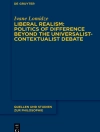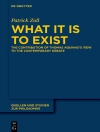Current research on social capital tends to focus on an economic reading of social relations. Whereas economists pride themselves on reaching out to social theory at-large, sociologists criticize the economization of the social fabric. The concept of social capital serves as a touchstone for the study of the role of the economy in modern societies. It serves as a breach for expanding the reach of economic categories, yet it also yields the opportunity for questioning and transforming economic premises in the light of social theory and philosophy. Exploring the concept of social capital in the context of related terms like embeddedness, trust, sociability, and cooperation is particularly instructive. This collection of papers from various disciplines (philosophy, sociology, economics, religious studies) combines conceptual studies and empirical findings. It is a plea for re-embedding economic thought in a broader theoretical framework. By exploring the varieties of social identities implied in the theories of social capital, the authors argue for a social (or more sociable) conception of man.
Об авторе
Dieter Thomä, St. Gallen, Switzerland; Hans Bernhard Schmid, Vienna, Austria; Christoph Henning, St. Gallen, Switzerland.












